In July 1969, President Richard Nixon dealt with Cold War triumph and adversity in quick succession. On July 24, he met the Apollo 11 astronauts on their return from the moon landing, a highly symbolic American victory in the space race. On the next day, at a press conference in Guam, he tried to adapt U.S. foreign policy to the pressures of the Vietnam War, which were stretching the military’s ability to meet America’s global commitments. He resisted calls to withdraw American ground forces from Vietnam immediately, and searched for a way to reinvigorate U.S. alliances around the world, hoping […]
Defense & Security Archive
Free Newsletter
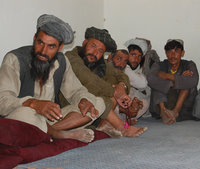
WARDAK, Afghanistan — The most frustrating part of this war is not the fighting. In fact, there isn’t so much of that, besides the roadside bombs and the occasional mortar or rocket attack. The hardest bit is to convince the Afghans — especially the Pashtuns, formerly the main backers of the Taliban regime — that the coalition wants to offer its help, and can protect those that accept it. What usually happens is this: A platoon of U.S. soldiers turns up in a village, inquiring if its inhabitants need anything — jobs, medicine, more security, or even a new bridge […]
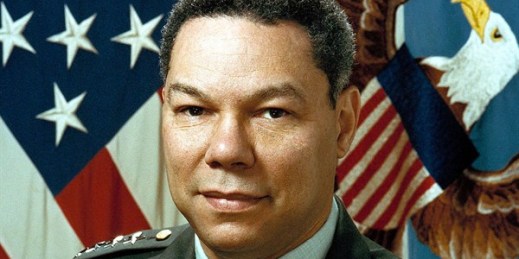
Editor’s note: The following article is one of 30 that we’ve selected from our archives to celebrate World Politics Review’s 15th anniversary. You can find the full collection here. Once upon a time, there was a grand and influential foreign policy doctrine. It was based on some traditional notions about U.S. statecraft that placed severe constraints on when America went to war. It asserted that when the United States used military force, it must do so in decisive fashion and only in the service of vital national interests.* For any military action, it counseled the dispassionate weighing of costs and benefits, […]
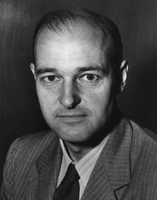
Upon taking office in January 2009, in addition to inheriting ongoing wars in Iraq and Afghanistan, President Barack Obama also inherited twin nuclear crises with North Korea and Iran. North Korea conducted its second nuclear test in May 2009, while Iran continues to flout U.N. Security Council resolutions requiring the suspension of its uranium enrichment program, which the United States and other countries believe is central to Tehran’s clandestine effort to acquire nuclear weapons. The nuclear crises are playing out against the backdrop of potentially significant societal developments in both countries. In North Korea, a stroke reportedly suffered by Kim […]
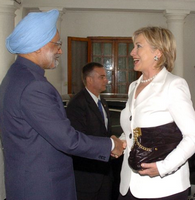
NEW DELHI — Secretary of State Hillary Clinton’s five-day trip to India marked the formal launch of a full-fledged bilateral exchange between Washington and New Delhi, one that will set the tone for the trajectory of India’s future engagement with the Obama administration. As expected, Clinton’s agenda covered the five pillars of the Indo-U.S. relationship: defense cooperation, science and technology, energy and climate change, education and trade. But the visit left the impression that it was crafted to be more symbolic than substantial, leading many to believe that Clinton was working according to a script, rather than as a much-vaunted […]

Since taking office in May 2008, Russian President Dmitry Medvedev has made improving ties among the former Soviet republics that form the Commonwealth of Independent States (CIS) a foreign policy priority. Nonetheless, recent weeks have yielded further signs of Moscow’s flailing leadership within the group. Only five of the 10 heads of state, invited personally by Medvedev, participated in the latest annual informal CIS summit, held on July 18. The centerpiece of the event, as in past years, was attendance at the annual President’s Cup horse race at Moscow’s Central Hippodrome. Humorists blamed the large number of no-shows on Medvedev’s […]
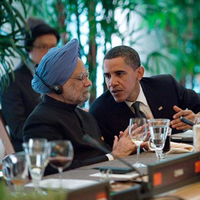
Has Washington forgotten about India? After increased engagement and improved bilateral ties under two successive American presidents, several commentators have wondered if President Barack Obama is undervaluing relations with New Delhi. With the new administration’s attention centered on developing a partnership with China, stabilizing Afghanistan and Pakistan, re-engaging Russia, and containing Iran and North Korea, it’s unclear whether India will be a strategic priority for the United States. That Washington has been primarily focused on the U.S.-China relationship is understandable. Leadership from today’s superpower and tomorrow’s great power are seen as essential for addressing transnational threats. U.S. Secretary of State […]
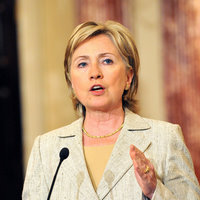
Last week’s major policy address by Secretary of State Hillary Clinton was as noteworthy for the strategic concepts she dismissed as for the ones she embraced. Clinton provided Americans with a strong sense of how she plans to conduct U.S. foreign policy: not merely as “the indispensable nation” that assumes international leadership, but rather as the global rule-set convener that aggressively builds partnerships across a strategic landscape pulsating with rising players — both state-based and transnational. In doing so, Secretary Clinton explicitly rejected the emerging — and yet painfully antiquated — conventional wisdom that portrays a world inevitably divided into […]
WARDAK, Afghanistan — The small Afghan police and army outpost in this small district center looks like a war zone. The buildings are bullet-pocked and burnt, there is a burnt-out vehicle out front, and a rather nasty-looking machine-gun nest overlooks the road. Tired-looking Afghan policemen are milling about among the buildings. The appearances don’t lie: The center, originally built for civilian purposes, is a war zone. The 50 Afghan policemen and army troops stationed here come under attack by the Taliban almost every afternoon at 5 o’clock. The shooting goes on until about 9 p.m. After that, there is no […]
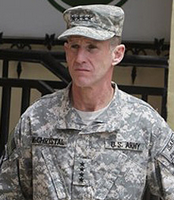
The cliché that you must “protect the population” in order to win a counterinsurgency has now become entrenched in conventional wisdom. This is especially so of the war in Afghanistan, where civilian casualties have become a deeply polarizing issue. It has become so important that, during a recent trip to Helmand Province, Gen. Stanley McChrystal, the new commander of U.S. and NATO-led troops in Afghanistan, declared that Coalition forces must make a “cultural shift” in Afghanistan, away from their normal combat orientation and toward protecting civilians. But protecting the population requires knowing where it lives. Here, the Army’s conventional wisdom […]
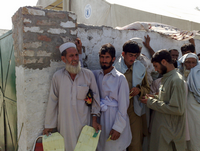
KARACHI, Pakistan — There has been a perceptible shift in the battle against militancy in Pakistan. The massive army operations that recently concluded in the Swat valley, the largest ever conducted by Pakistan against the Taliban, are but one facet of it. For the first time, the government is also winning the propaganda war. Ordinary citizens and political parties from across the spectrum — including religious ones — have rallied around the army. At a series of government-organized religious conferences in May, scholars denounced the Taliban as a perversion of Islamic teachings. While stopping short of apologizing for their role […]
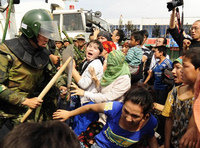
When ethnic disturbances broke out in western China last week, bringing the worst violence the country has seen in years, international reaction proved curiously mild. The violence in Urumqi, the capital of Xinjiang province, resulted in the deaths of at least 184 people, with some putting the number much higher. The events alarmed China’s leadership, prompting President Hu Jintao to suddenly leave the G-8 summit in Italy. As for the rest of the world, the sense of alarm, if there was one, seemed rather muted. World leaders remained eerily quiet or spoke in tones strikingly deferential to China, despite pleas […]
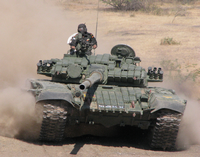
The ceremony last Feb. 12 at the commercial seaport in Mombasa, Kenya, was a surprising one. When the Ukrainian-owned merchant ship Faina sailed into port, five months after its capture by Somali pirates and a week after its release, the Kenyan government rolled out the red carpet. Civilian officials and military officers lined the pier, and armed guards patrolled, as Faina’s weary seafarers debarked. There were speeches and reluctant testimonies by Faina’s senior crew before the strange gathering came to a halting end. Hundreds of vessels had been seized by Somali pirates over the previous decade, and their releases had […]

WARDAK, Afghanistan — The new Afghanistan strategy is supposed to be all about winning hearts and minds. But this small combat outpost high in the Hindu Kush mountains seems to be mostly about fighting. The outpost, manned by Delta Rifle Company* of the U.S. Army’s 10th Mountain Division, has been mortared or rocketed seven times in the last two days. They also got involved in a major firefight between the Taliban, Afghan security forces and private security contractors protecting the supply trucks heading up the main road towards Kabul. To be fair, overall violence levels in Wardak province have dropped […]
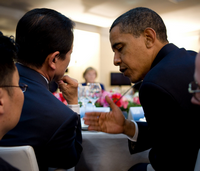
Critics of the Group of Eight (G-8) tend to focus on economic issues in challenging the format’s continued relevance. Citing the decreasing share of the economic resources and clout at the group’s disposal, commentators often advocate replacing it with a G-14, a G-20, or some other, more inclusive body. Such a focus, however, neglects another important aspect of the work conducted by the G-8: Since the 1980s, the group’s annual meetings have given rise to important international security initiatives, which have been sustained and further developed over time. The G-8 structure has also proven sufficiently flexible to incorporate additional partners […]
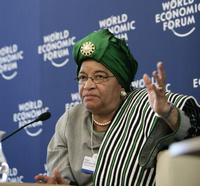
MONROVIA, Liberia — Liberia’s Truth and Reconciliation Commission (TRC) released its conclusions last week, and though debate continues on a number of issues, the findings already produced some surprises. In particular, the inclusion of President Ellen Johnson Sirleaf on the list of those recommended to be barred from Liberian politics for the next 30 years turned the most heads, both here and abroad. Sirleaf, Africa’s first elected female head of state, is the darling of the international development community. Many see her as a rare ray of hope in a country, and region, where violence and corruption have for too […]
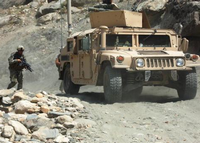
WARDAK, Afghanistan — The most surprising thing, initially, is how difficult and time-consuming even the most basic tasks are — like getting around between coalition camps, for instance. I had left Forward Operating Base Airborne — where I am based with U.S. Army units from the 10th Mountain Division and a French army training team — for a short trip to a nearby combat outpost, only a few miles away. The objective had been to take water, food, and building materials to the new outpost. The trip, which had promised to be relatively easy and painless, ended up consuming the […]
